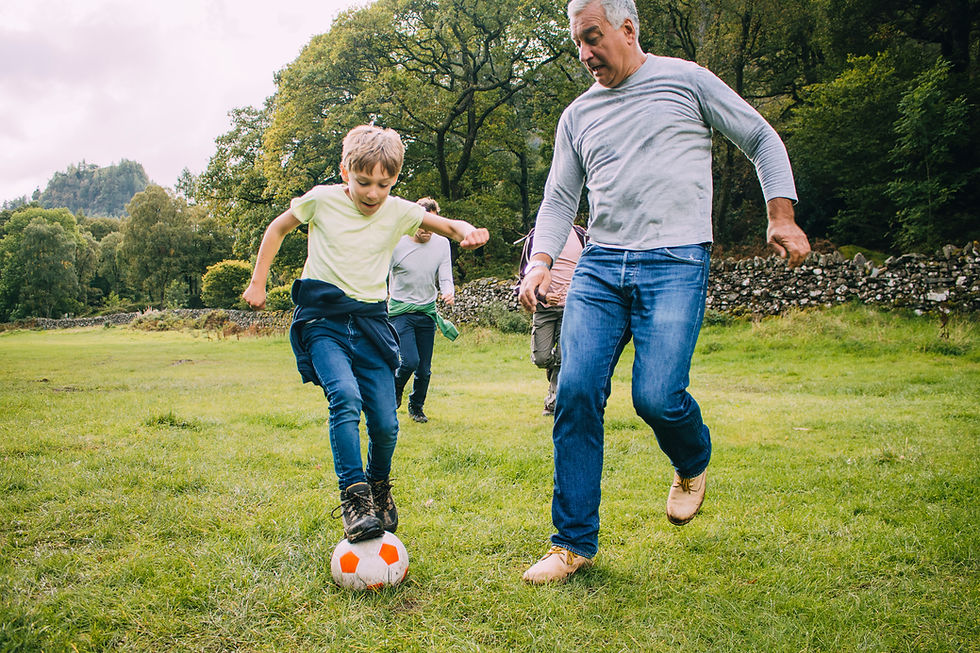Ages, stages and phases.
- casey brown
- Dec 7, 2022
- 2 min read
Exercise trends often make you feel like you should be moving in a certain way regardless of your current fitness and strength ability, past exercise experience, age, stage, phase, medical conditions, and ailments. This is simply incorrect. While an exercise trend might show newly found benefits/adaptations, this doesn't mean it is the only type or mode of movement you could or should be doing that is beneficial for you right now. From CrossFit, to F45, HIIT training, vibration machines, mini workouts (10min sessions repeated a few times throughout the day), home gym systems, and online training platforms the options are endless.
Your body is going to need and welcome many different forms of movement over its time. From playground exploration to school sports, hobbies, rehabilitation, directed training, leisurely physical activity, competitive sports, general training and maintenance, the type of movement will vary significantly. That is why, your age, stage and phase is important when choosing the right movement pattern for you right now.

How to choose the right or best movement type for you right now? Things to think about...
If you have any current or 'significant' past injuries that are causing you pain/discomfort and or instability, you should consult with an exercise specialist/ physiotherapist for a fully personalised program to follow.
If you have medical condition(s) that can be affected by exertion you need to get clearance from your GP for either (low, moderate, or vigorous) intensity exercise before starting a personalised program by an exercise specialist.
If you are new to exercise/ haven't exercised for several years you need and should 'start low' and 'progress slow'. Remember you want to make this a habit not a chore. Adequately building a strong base and progressing appropriately will reduce burn out and injury risk. Choose workouts that provide 'beginner' level exercises. Stay away from 'jumpy' 'runny' ' explosive' workouts.
A strong support network if you are new or struggle with habit building and accountability should be of high importance. Can you talk to your trainer/ coach as needed? Can your workouts be changed easily if needed?
Depending on your age / gender some aspects of fitness should be of more importance to you. For example:
- Post-partum mum : pelvic floor health, deep core stabilisation and strong postural muscles.
- Teenagers : full body, body weight exercises, a mix of resistance, cardio, flexIbilty if in 'training'. Encourage active commuting and general 'leisure activities'.
- Women 40 years+ : importance of increasing/ maintaining lean muscle mass for 1) weight management 2) bone health.
- Men 40 years+ : reducing visceral fat to lower risk of cardiovascular events.
- Elderly population : strength maintenance, with a strong focus on balance and coordination activities to reduce fall risk.
6. What your levels of stress, anxiety, worry are : you wonder why this would matter? If your body is often in 'flight or fight' performing exercise that is of high intensity for sustained or prolonged periods will exacerbate these levels and this survival response. You don't want to add more fuel to a system that is already in full burn mode.




Comments